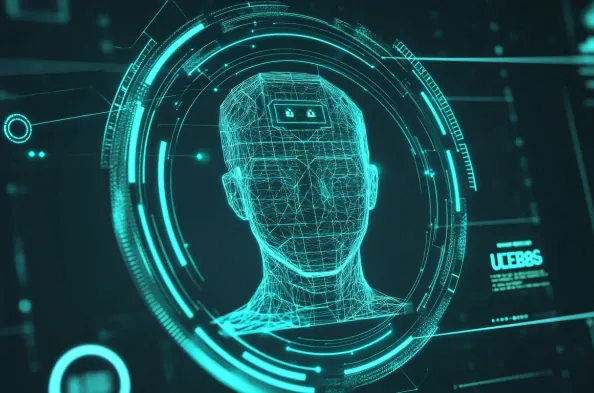In an increasingly digital world, the rise of cyber threats poses significant challenges to individuals and organizations alike. With the ever-growing sophistication of cyber-attacks, traditional cybersecurity measures often fall short. Enter Artificial Intelligence (AI) – a technology poised to revolutionize cybersecurity. This article explores the profound impact of AI on enhancing cybersecurity measures, shedding light on its capabilities and limitations.
The Rise of AI in Cybersecurity
Artificial Intelligence has become a game-changer in the realm of cybersecurity. Its ability to process vast amounts of data and identify patterns has been instrumental in fortifying defenses against cyber threats. Unlike traditional systems reliant on predefined rules, AI systems leverage machine learning algorithms to continuously adapt and learn from new data. This dynamic approach allows AI to predict and detect subtle anomalies that could signal potential threats.
Advanced Threat Detection
One of the standout features of AI in cybersecurity is its proficiency in threat detection. AI systems can analyze network traffic, user behavior, and other data points to identify irregularities that may be indicative of malicious activity. These systems excel at distinguishing between normal and abnormal behavior, often flagging threats that human analysts might overlook. Additionally, AI can sift through massive volumes of data in real-time, providing immediate alerts and facilitating rapid response times.
Machine Learning and Pattern Recognition
AI’s prowess in pattern recognition and machine learning has transformed cybersecurity paradigms. By continuously analyzing data, AI systems can identify emerging threats and adapt their defense mechanisms accordingly. As cyber attackers evolve their techniques, AI-driven models learn to recognize these new patterns, enabling proactive measures. This adaptability makes AI a formidable ally in the ongoing battle against cybercriminals.
Automation and Response
Another significant advantage of incorporating AI into cybersecurity measures is automation. AI can automate routine tasks such as monitoring, threat analysis, and even response actions. This not only reduces the burden on cybersecurity personnel but also minimizes the risk of human error. Automated responses, driven by AI, can mitigate threats in real-time, effectively neutralizing potential breaches before they escalate. Furthermore, AI-driven systems can prioritize threats based on their severity, ensuring critical incidents receive immediate attention.
Challenges and Limitations
While AI brings a plethora of benefits to cybersecurity, it is not without challenges. One of the primary concerns is the dependency on large datasets for training AI models. Poor data quality or biased datasets can result in inaccurate threat detection, potentially leading to false positives or negatives. Additionally, sophisticated attackers may exploit AI systems by feeding them misleading information, known as adversarial attacks. To counteract this, continuous monitoring and updating of AI systems is crucial.
The Road Ahead
Looking ahead, the integration of AI in cybersecurity is expected to deepen. Collaboration between AI developers and cybersecurity experts will be key to harnessing AI’s full potential. Enhanced security protocols, real-time adaptability, and the ability to predict and prevent emerging threats will drive the next wave of innovation in this field. As organizations continue to embrace AI, a holistic approach that combines human expertise with AI’s capabilities will ensure robust cybersecurity measures.
In conclusion, the impact of AI on cybersecurity measures has been transformative. The technology has introduced sophisticated threat detection, pattern recognition, and automation capabilities that traditional methods could not achieve. Although challenges such as data dependency and adversarial attacks exist, the continuous evolution and refinement of AI promise a future of more secure digital environments. Embracing AI’s potential while addressing its limitations will be essential in navigating the shifting landscape of cybersecurity.






